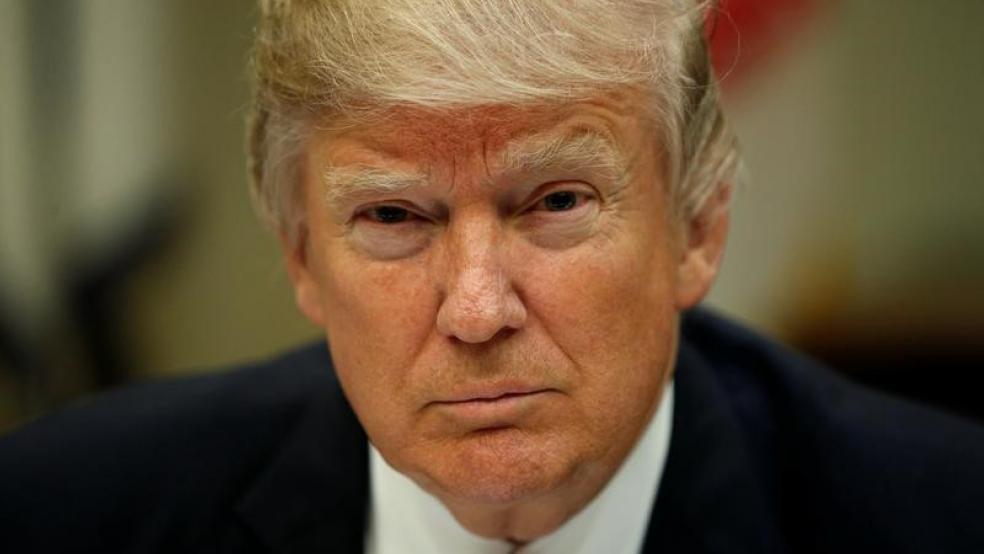Sen. Bob Corker (R-TN) recently fretted that the Republicans’ attempt to repeal and eventually replace the Affordable Care Act was leading the GOP into a “box canyon.”
President-elect Donald Trump did little to allay Corker’s and others’ fears that they may be heading down a political blind alley by declaring over the weekend that he would shortly unveil a replacement plan that would slash premiums and co-pays, shift to a more market-oriented system, and provide “insurance for everybody.”
Related: Trump Says His Plan Would Provide ‘Insurance for Everybody’
But Trump’s vision for overhauling the existing health care system and providing universal health insurance coverage – revealed by the GOP president-elect in an interview over the weekend with The Washington Post – is sharply at odds with the proposals advanced by House Speaker Paul Ryan (R-WI) and Rep. Tom Price (R-GA), that would offer “universal access” to Americans, but no guarantees of coverage.
Ryan and Price – Trump’s nominee to lead the Department of Health and Human Services (HHS) – see eye to eye on a number of changes in replacing Obamacare. Those include scrapping most Obamacare mandates and taxes, replacing the current subsidies for lower income people with a refundable tax credit that would provide less premium buying power, encouraging the interstate sales of health insurance policies, and the creation of state operated high-risk pools to provide coverage to sick or elderly consumers.
However, universal health insurance coverage – an idea aggressively promoted by Sen. Bernie Sanders (I-VT) and scores of other progressives -- would be enormously costly and is not currently on the congressional GOP policy radar screen. An estimated 20 million Americans have acquired coverage under Obamacare, and the rate of uninsured dropped to a record low of 10.9 percent in the third quarter of 2016 in contrast to 11.9 percent in the fourth quarter of 2015.
Related: 8 Big Changes Under Tom Price’s Obamacare Replacement Plan
The prospects of Trump ultimately achieving the goal of health care coverage for all Americans seems highly problematic, particularly since no congressional leaders are willing to raise taxes to finance the expansion. And Trump reaffirmed over the weekend that he would not cut Medicare spending to help offset the cost of a more expansive health care program.
Politico reported on Tuesday that congressional Republicans are “caught in between,” rushing to repeal Obamacare through an expedited budgetary process begun late last week, while receiving “mixed signals” from the incoming administration regarding what will replace it. What’s more, several key Republicans, including Senate Finance Committee Chair Orrin Hatch of Utah, already have signaled little enthusiasm for Price’s approach.
“We still don’t know exactly what they want to do,” Hatch told reporters.
Democrats, for their part, are mounting a nationwide campaign to try to salvage Obamacare. They are claiming that Trump and the Republicans are sowing chaos in the health insurance market that will lead to millions of Americans losing their coverage in the coming year or two.
Related: What Obamacare Repeal Could Mean for Your Workplace Health Plan
Indeed, the Congressional Budget Office and Joint Committee on Taxation warned in a study issued on Tuesday that the number of people who are uninsured would increase by 18 million in the first new plan year following enactment of the Republicans’ Obamacare repeal legislation.
“Later, after the elimination of the ACA’s expansion of Medicaid eligibility and of subsidies for insurance purchased through the ACA marketplaces, that number would increase to 27 million, and then to 32 million in 2026,” the report stated.
Senate Minority Leader Chuck Schumer (D-NY) has said that neither he nor other Democrats would lift a finger to help Trump and the Republicans forge a replacement for Obamacare unless they took part in serious negotiations with the GOP to fix the worst aspects of Obamacare and to bring down premium and out-of-pocket costs.





